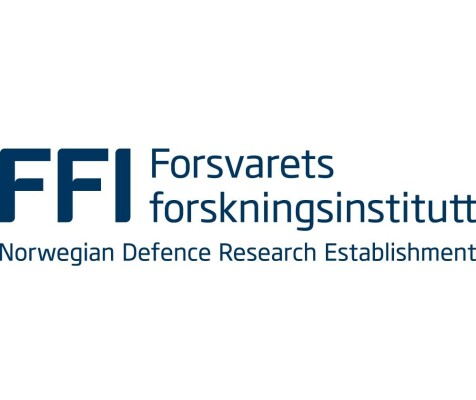This article is produced and financed by the Norwegian Defence Research Establishment - read more
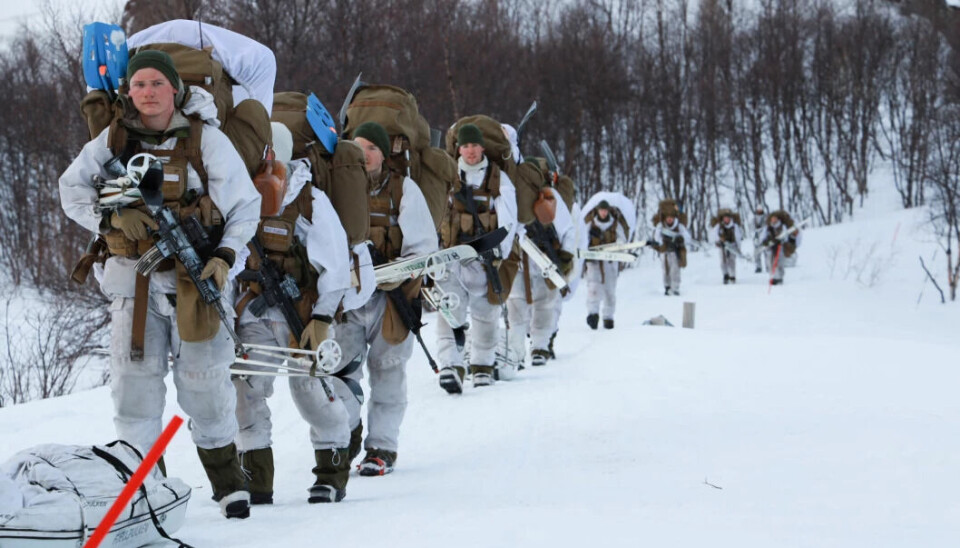
What kind of food is best for soldiers?
Research shows that soldiers lose muscle mass during long and strenuous exercises. Can dietary supplements prevent and reduce this problem?
A group of soldiers emerge from the polar forest on Finnmarksvidda in the north of Norway. They are dressed in winter camouflage and carry full combat equipment. For eight straight days they have been out on a winter exercise. Last night they were awake, defending their base.
Seven American and four Norwegian researchers are waiting for the soldiers by a nearby lake. The researchers collect waste and urine samples from the soldiers, and hand out field rations for the next 24 hours.
The soldiers are conscripts at the Garrison in Sør-Varanger (GSV). After six months of training, the best recruits are sent to the Norwegian-Russian border to serve as border guards.
Right now they are part of a unique research project that can help increase the strength and endurance of Norwegian and American soldiers in the field.
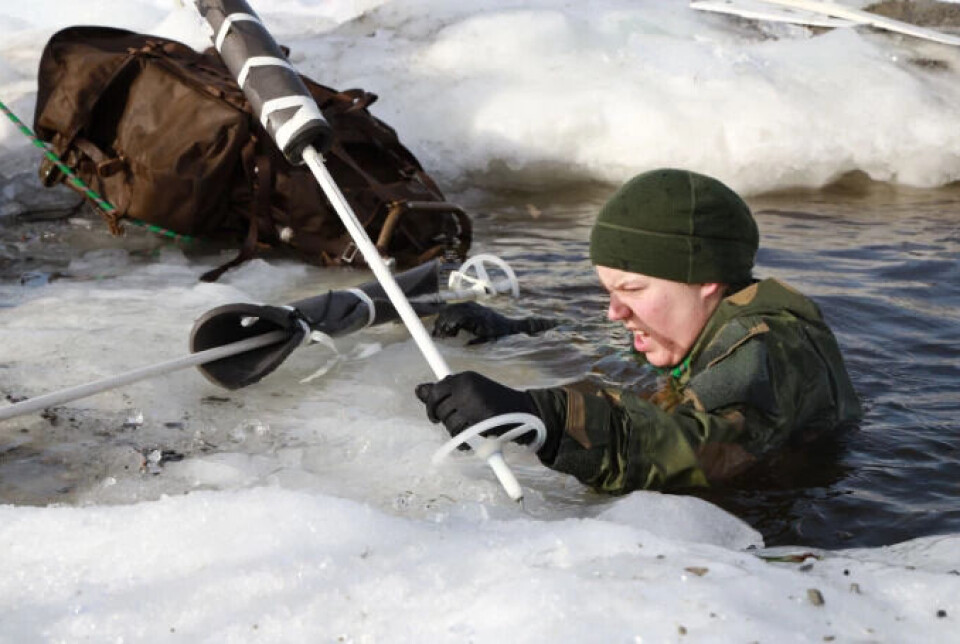
Testing new energy bars
Many soldiers are in energy deficit during war and demanding exercises. They simply do not get enough food. When in energy deficit, the body starts to break down muscles to get nutrition, and the soldiers lose strength.
In cold weather, our body needs extra energy.
“We need roughly 6000 calories every day during exercises like this. Previous surveys show that most soldiers only manage to eat 3000 calories a day, half of what they really need,” says Hilde Teien, senior researcher at the Norwegian Defence Research Establishment (FFI).
In the research project, the conscripts were divided in three groups that were given three different types of energy bars in addition to their field ration for the duration of the exercise.
One of the groups got an energy bar with a special mix of essential amino acids. The researchers want to find out if this this group had retained more muscle strength and muscle mass after the exercise.
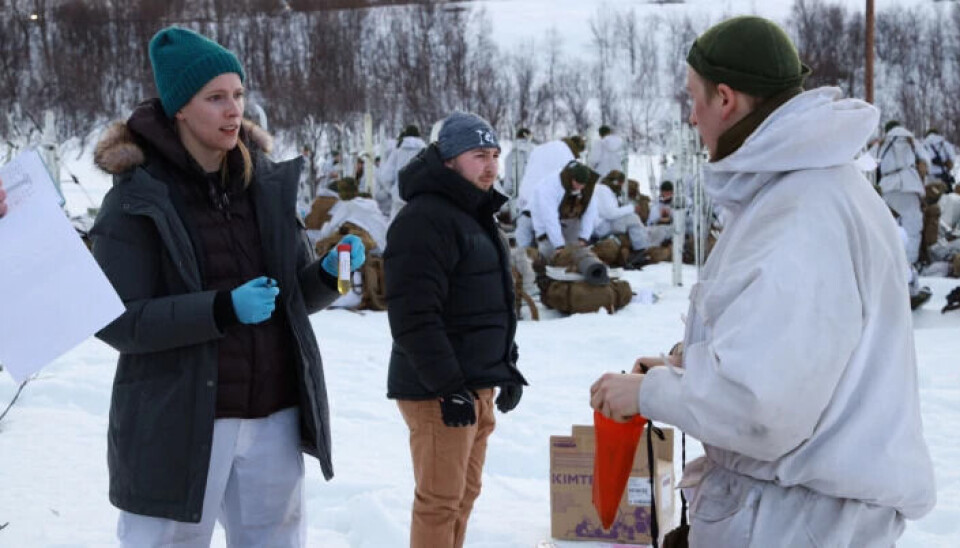
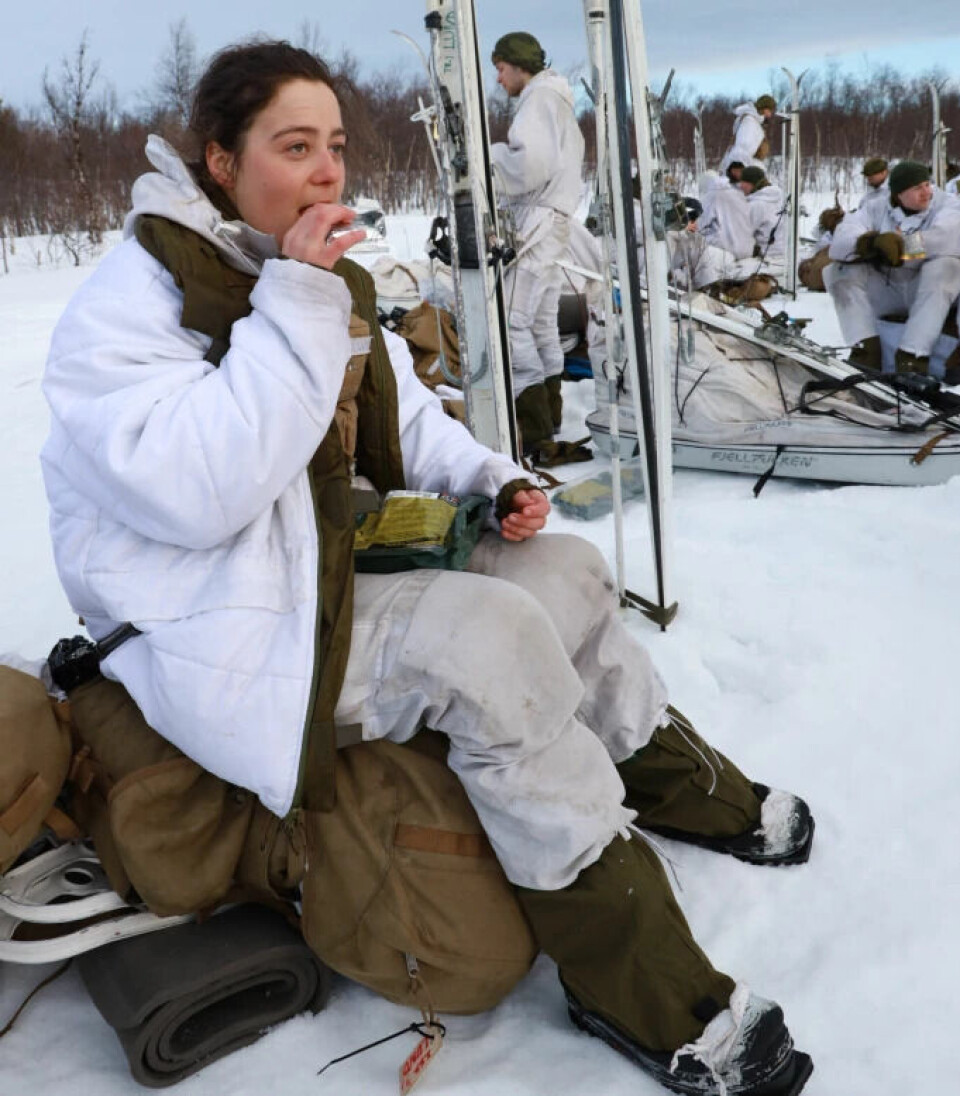
Essential amino acids
“When we eat, proteins help us build muscle. This is why athletes in particular are concerned with getting enough protein. Essential amino acids are the parts of the protein that help us build muscle,” Teien explains.
“Controlled lab experiments have shown that adding exactly this composition of essential amino acids to food can prevent the loss of muscle mass when we are in energy deficit. But it has never before been tested whether it works in practice on soldiers out in the field.”
Results expected this autumn
The researchers also investigated whether the nutritional supplements helped prevent other effects the exercise has on the body.
“In exercises like this, there may be changes in the health of the stomach, the composition of bacteria that live in the intestine, inflammation in the body, hormonal changes and changes in physical performance,” Teien explains.
The researchers expect to present the first results in the autumn of 2022.

Important for the armed forces
The information collected by the researchers will be used to develop new combat ration products that help soldiers recover.
Thomas A. Valnes works to improve human performance in the Norwegian Army. He is excited to see the results.
“There is a close link between mental and physical performance and nutrition. Therefore, the topic of this study is very important for the Army and the Armed Forces,” Valnes says.
“Optimizing nutrition to maintain operational capability as far as possible is important under field conditions. Especially in winter. This project is about utilizing all details that can prevent loss of operational ability during education, training, exercises and operations and help to speed up recovery afterwards. It is also important to develop practical solutions that can be used in the field.”
Video: Espen Wang-Naveen (FFI)
References:
Hilde K. Teien et al.: Er det forskjell i fysisk respons og restitusjon mellom kvinner og menn etter krevende militære feltøvelser? FFI, 2020. (In norwegian)
J. Philip Karl et al.: Military training elicits marked increases in plasmametabolomic signatures of energy metabolism, lipolysis, fatty acid oxidation, and ketogenesis. Physological Reports, 2017.
John W. Castellani et al.: Cardiovascular and thermal strain during 3–4 days of a metabolically demanding cold‑weather military operation. Extreme Physiology & Medicine, 2017.
———
Read the Norwegian version of this article at forskning.no







